- Pediatric Answers
- Posts
- Does My Child Have ADHD?
Does My Child Have ADHD?
Every parent has asked themselves at some point the magic question: Does my child have ADHD?

What's Inside

Does My Child Have ADHD?
Every parent has asked themselves at some point the magic question: Does my child have ADHD? It is impressively frustrating to have to ask your child a hundred times to do something. I know as a parent, I have often thought, “If I have to ask you one more time to …x, y, z…..my head is going to explode.” But there is a definite difference between kids who simply don’t listen and those who have true ADHD.
What is ADHD?
ADHD is attention deficit, hyperactivity disorder. There are essentially three types of ADHD:
The kid who can’t focus and has just the attention component.
The kid who is all over the place hyperactive
And the kid who has the two combined symptoms.
There is an official set of diagnostic criteria (outlined in the Diagnostic and Statistical Manual of Mental Disorders). In short, the criteria requires that the child has symptoms in more than one setting (e.g., at home and at school). If the child is great at home, but only has trouble at school, then the child needs school help (or may be related to poor teaching). If the child is great at school, but terrible at home, then the child needs help at home (it may be related to parenting). If the child has trouble in both home and school, chances are the problem is ADHD.
ADHD Signs and Symptoms:
When you read through the list, don’t pick and choose (your child would need most of the symptoms to get a diagnosis). Keep in mind that some of these behaviors are pretty normal. With kids who have ADHD, it’s often extremes of these and very frequent. Here’s a sampling of observed symptoms.
Inattention
Has a hard time paying attention
Doesn’t seem to listen
Easily distracted
Is forgetful in regular daily activities
Makes careless mistakes in schoolwork
Loses things (e.g., homework, books, etc.)
Has trouble organizing tasks and activities
Hyperactivity/impulsivity
Can’t stay in a seat (constantly running and climbing on everything)
Is constantly moving
Blurts out answers before the question is completed
Has trouble waiting for things (e.g., in lines)
Fidgets in a chair
Talks excessively
Interrupts conversations
Easily looses temper
How is ADHD diagnosed?
ADHD is diagnosed by a qualified health care professional (e.g., pediatrician or psychiatrist). In addition to clinically evaluating the child and taking a good history, there is usually formal testing done. Commonly this is done with measures like the Vanderbilt or Connors tests. These are forms that the parents and teachers both fill out and the doctor will score. It is worth noting that even if a child has symptoms of ADHD, if the child is not having impairment (e.g., the child has a hard time focusing, but is still a straight A student), then the child will not meet a diagnostic criteria. The child has to be having problems as a result of the ADHD.
How young is ADHD diagnosed?
As a general rule, kids are usually school-aged when diagnosed. This is when most kids are regularly in a second environment during the day, the requirements are increased on them, and problems really come to a head. Officially, a diagnosis can be made as young as 4, but typically medications aren’t recommended in that early age group. Most kids get diagnosed in 1st or 2nd grade.
How is ADHD treated?
There are a handful of approaches to treating kids with ADHD. The first is behavioral therapy. This can be effective in some kids, but is generally not the cure all that parents hope and want it to be. The second option is medications. Typically this is with the stimulant drug class. Contrary to what you may think (my kid is already stimulated enough, right?), the medication is stimulating the part of the brain that helps with control and focus. The medications won’t make your kid more hyper. There are a number of medications in this drug class and deciding which is best for your child is a decision you and your doctor should make together. It is worth mentioning that the medications have side effects, most notably: suppressing appetite and causing trouble sleeping.
(Note: there is a small, but significant involvement with the heart in some select patients. Before starting your child on meds, your doctor should discuss it with you).
It is important to remember when you are discussing treatment that you do not have to medicate kids who have ADHD. Most people opt to medicate because it often improves the quality of life, but it is not required. Scientifically, medication has been proven to be the single most effective treatment for ADHD. It is worth mentioning that there are lots of other popular alternative treatment options out there. While most of them don’t have a lot of scientific background, they are not usually harmful either (there’s nothing wrong with improving a diet or making sure children get more regimented sleep, etc.). Unfortunately, there isn’t a cure for ADHD, but there is significant improvement that can be made in the lives of those dealing with it.
If you are concerned your child may have ADHD, discuss it with your pediatrician. But remember, some failure to listen and crazy behavior out of kids is normal.

Fact Or Fiction: You Outgrow ADHD
Children with ADHD outgrow this condition.

FALSE
Straight from the American Academy of Pediatrics (AAP):
”Parents and many doctors once believed that as children with ADHD enter adolescence and then move into adulthood, their ADHD will no longer be an issue. But recent studies have shown that some aspects of ADHD can persist well into adult life for as many as 85% of these children. Some adults can still benefit from the use of ADHD medication for the rest of their lives. Others have demonstrated enough improvement that this medication becomes unneeded depending on what occupation they choose and their ability to succeed in relationships and other social activities. No matter what the circumstances of particular adults may be, however, they can make adjustments in their environment, take full advantage of their own strengths, and lead very productive adult lives, even when aspects of ADHD still persist.”

What I’m Seeing In My Office: Med Shortages
There is a nationwide shortage of controlled substances, specifically stimulant medications. This means, we are fielding multiple calls a day from frustrated parents who are struggling to get ADHD medications for their kids.
The federal drug enforcement administration (DEA) places caps on production of controlled substances. The manufacturers blame the DEA and said caps for the shortage. While the DEA blames the manufacturers, claiming that they are not manufacturing up to their quotas. Knowing who is to blame doesn’t change the fact that the doctors and patients are left holding the bag.
What to do?
Fill at a pharmacy you have filled before (many pharmacies will not fill new ADHD prescriptions if you are not an already established patient).
Use trade name medications (instead of generics) if your insurance covers them (the trade name meds are easier to come by due to their higher cost).
Call your pharmacy ahead to see if they have the medication in stock. Since most pharmacies can’t transfer control substances, you will have to have a new script sent to a different pharmacy if your pharmacy doesn’t have the medication. This back and forth will delay getting your medications.


Money-Saving Healthcare Hack: Two ADHD Hacks
Two hacks for the price of one this week. One to save you time. One to save you money.
Hack 1: Come to the first visit with your forms already filled out.
Typically, getting a diagnosis of ADHD and initiating treatment requires two visits to the doctor. In the first visit, the doctor takes the history and gives you the forms to have the parent and teacher fill out. In the second visit, the doctor scores the forms and prescribes the medication. If you come to the first visit with your forms and the teachers’ forms filled out already, you can save yourself a visit.
Here’s a link to the Vanderbilt forms you need filled out (you need pages 2-5). Don’t worry about scoring or interpreting them, that’s the doctor’s job.
Hack 2: Bring a printout of covered medications from your insurance company’s drug formulary
Your pediatrician can write any medication to treat your child’s ADHD. She might as well write one that is covered better (a.k.a. costs less). Most insurance companies have a “drug formulary” list that members can access online. This list will have every medication by category (ADHD/stimulants medications, blood pressure meds, etc.) Medications are listed by tier: Tier 1, tier 2, and so forth. The cheapest medications are tier 1 and tier 2. Tier 3+ are typically more than $100/month. So if Methylphenidate LA (the generic for Ritalin Long Acting) is a tier 1 and Amphetamine-Dextroamphetamine ER (the generic for Adderall Extended Release) is a tier 3, you could save well over a hundred dollars per month by choosing the tier 1—Methylphenidate LA (Ritalin LA) vs. the tier 3—Amphetamine-Dextroamphetamine ER (Adderall ER).

WWW: What Would Wonnacott Do?
I often joke that if it wasn’t for my profession, we’d be in the doctor’s office every week with some medical problem with one of our four children. I use my skills daily. In this section, I give an example of what I encountered at home this week and how I handled it. I figure if it happens to me, it probably happens to other parents. When appropriate, I’ll tell you all the details, including brands of products I used. This is not an advertisement for these products. I don’t have financial interest in these companies/products. I simply have parents ask me all the time about what to do in certain situations and the products I use.
Scenario: One of my kids is dealing with a bit of a bully at school. At dinner last night, she expressed her concerns and we discussed as a family.
What I did: My instinct was to jump in with suggestions for solutions. I resisted the urge. Instead, everyone else made suggestions. The suggestions were as varied as “pile drive the bully to the face” to “ignore him” to “kill him with kindness.” In the end, the involved child was able to articulate what would be the likely outcomes of each suggestion. The process of talking it out empowered the child with an action plan. I’m happy to report today went much better.

Talk Like A Doctor: Methylphenidate
Doctors sometimes use big, fancy words because we like to look smart. 😜
Click the image below 👇️ to hear how it’s pronounced.

Recalls & Alerts: Pacifiers


Funny Things:
During an evaluation for ADHD, I asked the child to describe how he felt. He said:
“My brain feels jiggly.”
What a great description.
I love peds!

Legal Disclaimer: The information provided in this article is for educational and informational purposes only. It is not intended as a substitute for professional advice or medical treatment. Always seek the advice of your physician or qualified healthcare provider with any questions you may have regarding a medical condition or the health and welfare of your child. We do not endorse any specific products or brands mentioned in this article. Readers are encouraged to perform their own research and consult with appropriate professionals before making any decisions based on the information provided herein.


